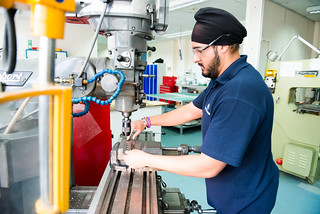Table of Contents
1. Introduction
Design engineering is an exciting and rewarding career path that involves creating innovative solutions and turning ideas into reality. Design engineers play a crucial role in various industries, from product design to infrastructure development. If you have a passion for problem-solving and a creative mindset, becoming a design engineer in India can be a fulfilling journey. In this article, we will explore the steps to embark on this career path and thrive in the field of design engineering.
2. Understanding the Role of a Design Engineer
Design engineers are responsible for conceptualizing and developing new products, systems, or structures. They work on a diverse range of projects, collaborating with cross-functional teams to bring ideas to fruition. Design engineers must possess a solid understanding of engineering principles and the ability to apply them to real-world scenarios.
3. Educational Requirements for Becoming a Design Engineer
To become a design engineer, you need to have a strong educational foundation. Most design engineers hold a bachelor’s degree in engineering, such as mechanical, electrical, civil, or industrial engineering. Pursuing a relevant engineering discipline will provide you with the fundamental knowledge required for this profession.
4. Gaining Relevant Skills and Knowledge
Beyond formal education, aspiring design engineers should focus on acquiring essential skills. These include proficiency in computer-aided design (CAD) software, problem-solving abilities, creativity, and critical thinking. Taking additional courses or workshops can enhance your skillset and boost your employability.
5. Internships and Hands-On Experience
Securing internships or practical training opportunities is crucial for aspiring design engineers. Practical experience allows you to apply theoretical knowledge to real projects, sharpening your skills and building your confidence. Look for internships in reputable companies or engineering firms to kickstart your career.
6. Networking and Professional Development
Networking is essential in any industry, and design engineering is no exception. Attend engineering events, seminars, and workshops to meet professionals and expand your connections. Joining engineering organizations and online communities can also provide valuable insights and opportunities.
7. Exploring Specialization Areas
Design engineering offers various specialization areas, including product design, structural engineering, and aerospace engineering. Explore different fields to identify your interests and strengths. Specializing in a particular area can open up niche job opportunities and help you become an expert in that domain.
8. Staying Updated with Industry Trends
The field of engineering is ever-evolving, with new technologies and methodologies emerging frequently. To stay relevant and competitive, keep yourself updated with the latest industry trends, innovations, and best practices. Continuous learning is essential to thrive as a design engineer.
9. Building a Strong Portfolio
A portfolio showcasing your projects and designs is an excellent way to demonstrate your skills and achievements to potential employers. Keep your portfolio updated and organized, highlighting your most significant contributions and successful projects.
10. Job Opportunities for Design Engineers in India
India’s rapidly growing economy has led to an increased demand for skilled design engineers. Look for job opportunities in industries like manufacturing, automotive, aerospace, construction, and consumer electronics. Online job portals, company websites, and professional networks are great places to search for design engineering roles.
11. Preparing for Job Interviews
Ace your job interviews by preparing thoroughly. Research the company and its projects, practice common interview questions, and showcase your problem-solving abilities. A confident and well-prepared candidate stands a higher chance of landing a design engineering position.
12. Embracing Continuous Learning
Learning doesn’t stop after you secure a job. Embrace a growth mindset and seek learning opportunities throughout your career. Attend workshops, pursue higher education, and learn from experienced colleagues to become a successful design engineer.
13. Challenges and Rewards of Being a Design Engineer
Design engineering can be challenging, with tight deadlines, complex projects, and technical hurdles. However, the rewards are immense, with the satisfaction of bringing ideas to life and contributing to society’s progress.
14. Conclusion
Becoming a design engineer in India requires dedication, education, and continuous learning. Embrace the challenges and leverage your creativity to excel in this field. Remember that success comes with perseverance and a passion for innovation. Now, embark on your journey to become a design engineer and shape the future with your creations.
15. FAQs
Q1: What qualifications do I need to become a design engineer in India?
A- To become a design engineer in India, you typically need a bachelor’s degree in engineering, preferably in a relevant discipline such as mechanical, electrical, civil, or industrial engineering.
Q2: Are internships essential for aspiring design engineers?
A- Yes, internships are vital for gaining practical experience and applying theoretical knowledge to real projects. They also enhance your employability and help you build professional connections.
Q3: Can I specialize in a specific area of design engineering?
A- Absolutely! Design engineering offers various specialization areas, including product design, structural engineering, and more. Exploring different fields can help you identify your interests and strengths.
Q4: What are the job prospects for design engineers in India?
A- India’s growing economy has increased the demand for skilled design engineers. Job opportunities can be found in industries like manufacturing, automotive, aerospace, construction, and consumer electronics.
Q5: How can I prepare for design engineering job interviews?
A- Prepare for job interviews by researching the company, practicing common interview questions, and showcasing your problem-solving abilities. A well-prepared and confident approach can improve your chances of success.




